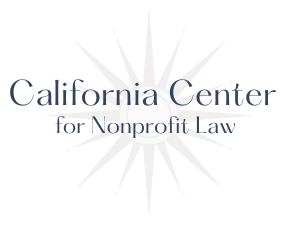
Charitable Deductions: The Importance of Providing the Contemporaneous Written Acknowledgment to Donors
Charitable organizations receiving tax-deductible charitable contributions must comply with all federal tax laws. One provision of the Internal Revenue Code (IRC) central to charitable contributions is the requirement that donors provide a specific and contemporaneous written acknowledgment of some charitable contributions to the donors. This acknowledgment is mandatory if the donors wish to claim the contributions as deductions on their federal income tax returns.
Charitable organizations receiving tax-deductible charitable contributions must comply with all federal tax laws. One provision of the Internal Revenue Code (IRC) central to charitable contributions is the requirement that donors provide a specific and contemporaneous written acknowledgment of some charitable contributions to the donors. This acknowledgment is mandatory if the donors wish to claim the contributions as deductions on their federal income tax returns. As a result, charities must be aware of these requirements and remain compliant with all facets of federal tax law. The California Center for Nonprofit Law is here to advise you on all legal requirements that impact your public charity, including those related to federal tax law. Call our office when you have questions about these important issues to keep your charity compliant with federal and state law.
The Duty to Provide Contemporaneous Written Acknowledgments to Donors
According to IRS Publication 1771, Charitable Contributions – Substantiation and Disclosure Requirements, donors may not deduct single charitable contributions valued at $250 or more on their federal income tax returns unless they obtain a contemporaneous written acknowledgment of the donation from the charitable organization. A failure to provide this acknowledgment does not penalize the charitable organization, but it does make it impossible for the donor to claim the tax deduction resulting from the donation. Since the tax deduction can be a valuable enticement for charitable organizations to entice donors, charitable organizations should understand the requirements of this acknowledgment and routinely provide it to donors for their records.
Required Contents for Contemporaneous Written Acknowledgments
Charitable organizations should issue acknowledgments of donations in writing that contain the following information:
· The name of the organization;
· The amount of any monetary contribution;
· A description (but not the fair market value) of any contribution of property;
· A statement that the organization provided no goods or services in return for the contribution if that was the case;
· If the organization did provide goods or services in return for the contribution, a description and good faith estimate of the fair market value of the goods or services; and
· If the organization only provided intangible religious benefits in return for the contribution, a statement so providing.
Defining “Written” for the Purposes of Contemporaneous Written Acknowledgments
An organization can provide a single written statement for every donation valued at $250 or more or an annual statement summarizing several contributions valued at $250 or more. Separate contributions valued at less than $250, such as weekly donations to a church, need not be aggregated.
The organization may deliver contemporaneous written acknowledgments to donors in paper format, such as letters, postcards, or computer-generated forms. Alternatively, the organization can deliver the acknowledgments electronically, such as in an email to the donor.
Defining “Contemporaneous” for the Purposes of Contemporaneous Written Acknowledgments
According to the IRS, “contemporaneous” means that the donor must receive the contemporaneous written acknowledgment on the earlier of:
· The date on which the donor files the donor’s federal income tax return for the year of the contribution; or
· The due date (including extensions) of such return.
To comply with this requirement, charitable organizations typically send written acknowledgments no later than January 31st of the year following the tax year in which the donation was made.
Goods and Services Provided in Exchange for Donations
As noted above, if the charitable organization did provide goods or services in return for a contribution valued at $250 or more, the written contemporaneous acknowledgment must contain a description and good faith estimate of the fair market value of the goods or services. The IRS generally defines goods and services as “cash, property, services, benefits, or privileges.” However, there are some important exceptions to goods and services for the purposes of the written contemporaneous acknowledgment.
Token Exception
Suppose a charitable organization provides goods or services with insubstantial value in exchange for donations. In that case, they do not constitute goods and services that must be included in the written contemporaneous acknowledgment. Goodes and services typically have insubstantial value if the donation occurs in the context of a fundraising campaign, the charity advises the donor about the amount of the payment that is a deductible contribution, and:
· The fair market value of the goods and services the donor receives does not exceed the lesser of 2 percent of the donor’s payment or $125.00 (as of 2023); or
· The donor’s payment is at least $62.50 (as of 2023), the only goods or services the charitable organization provides bear the organization’s name or logo (for example, calendars, mugs, or posters), and the cost of these items, in the aggregate, is within the limit for “low-cost articles,” which is $12.50 (as of 2023).
Similarly, low-cost items that charities send for free to solicit donations, such as mailing labels, are goods of insubstantial value.
Membership Benefits
Annual membership benefits are also insubstantial and thus not subject to the requirements for goods and services in terms of the contemporaneous written acknowledgment in some circumstances. Generally, if a charitable organization provides an annual membership benefit in exchange for an annual payment of $75 or less and consists of annual recurring rights, such as:
· Free or discounted admissions to the charitable organization’s facilities or events;
· Discounts on purchases from the organization’s gift shop;
· Free or discounted parking; and
· Free or discounted admission to member-only events sponsored by the organization, where a per-person cost (not including overhead) is within the “low-cost articles” limits.
Intangible Religious Benefits
If you are a religious, charitable organization that provides only “intangible religious benefits,” your contemporaneous written acknowledgment need not describe or include those benefits. The acknowledgment may state that your organization provided intangible religious benefits.
The IRS defines “intangible religious benefits” as “benefits provided by a charitable organization organized exclusively for religious purposes and are not usually sold in commercial transactions outside a donative (gift) context.” For instance, wine provided during a religious ceremony is an intangible religious benefit. On the other hand, education leading to a recognized degree is not an intangible religious benefit.
Contact Us Today for Legal Assistance
The California Center for Nonprofit Law focuses its practice on legal matters that affect charities and other nonprofit organizations in California. This unique focus allows us to concentrate on keeping abreast of the ever-changing laws and policies as they develop over time. We are here to represent the interests of your nonprofit organization throughout every stage of your legal matter. Call us at (949) 892-1221, email us at info@npolawyers.com, or fill out our contact form online and schedule a consultation about your nonprofit organization today.
